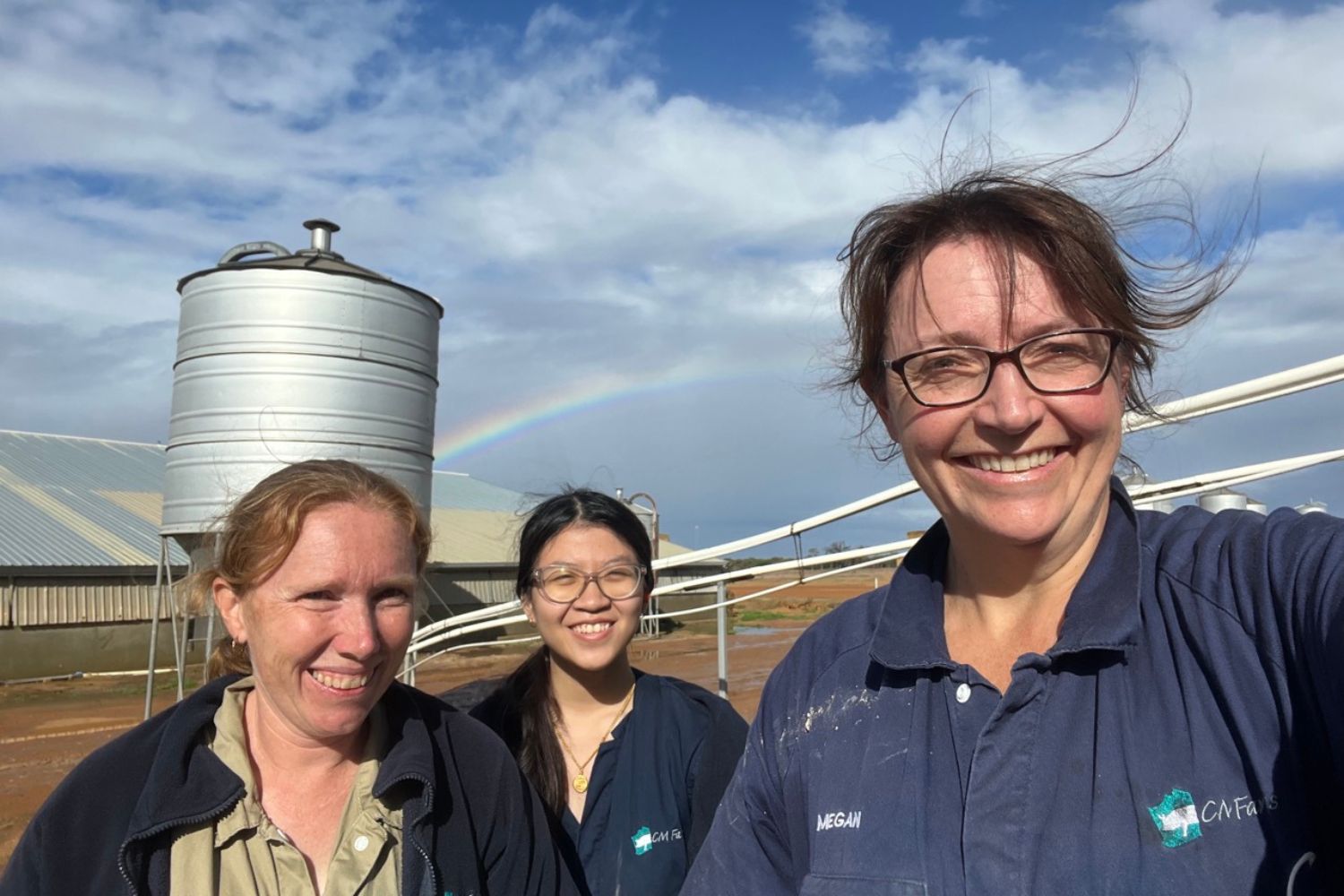The research team behind the Pig Welfare and Pork Provenance project has been talking with global leaders in livestock health and welfare about its findings and gaining input into the next phases of their project on using data-driven systems to monitor and predict compromises to animal health and welfare and inform responsive practices at scale. Below is an update from the project team.

Over the last month, we've spoken with Dr Barry Lloyd and Dr Mandy Nevel, both porcine veterinary surgeons, about our project and refining some of the findings to date. Dr Lloyd has a long association with the Australian pork industry and is a practicing vet, specialising in porcine medicine in Australia, and Dr Nevel is Head of Animal Health and Welfare at the Agricultural and Horticultural Development Board (AHBD) in the UK.
The available literature explains a great deal about the behaviours of pigs in various production systems but it’s no substitute for having a chat to validate and refine our early findings with people in the industry. We spoke to Dr Lloyd and Dr Nevel about their knowledge of pig behaviours when it comes to recognising the early stages of illness and compromised welfare.
XioT Health Tags, in the ears of weaner pigs, collect data every second on individual pig’s body temperature and proximity to key areas of interest such as feeding and drinking stations through the duration of their 22-week life. Data is captured continuously and provides insight into other behaviours such as the extent of physical activity and when pigs are active or at rest. Significant volumes of data will be foundational for machine learning to determine when something isn’t quite right with the pigs. So how do we know when things aren’t quite right? Until the data can tell us this, we first need to understand how pigs behave.
Dr Lloyd and Dr Nevel provided us with fascinating insights, not only into pigs’ behaviour, but understanding how those behaviours correlated with changes in welfare status, in the case of both individual pigs and how they behave in groups.
Dr Nevel spoke about how understanding drinking behaviour is key to unlocking improved pig welfare. Pigs who have fevers often have a higher water intake in an attempt to cool themselves down. When it comes to understanding drinking behaviour, it is critical to also understand the variance in water flow rates through drinkers on the farm as this may alter how pigs drink. Pressure rates that are too high or too low may deter pigs from drinking.
Dr Nevel also raised the issue of tail biting which is a significant welfare issue in all types of pig production systems. Despite this being extremely well explored in the literature, there are still unclear indicators of pigs that tail bite and pigs that are subjected to tail biting. If our research can find behavioural patterns around tail biting, then it could go some way to solving an issue that impacts global pig production.

A final issue we discussed with Dr Nevel was regarding what the literature is terming as “positive welfare”. This is where signs of contentment, rather than distress, are monitored to judge welfare. Signs of contentment include socialising, playing, engagement with enrichment devices and exploration. If the 3PS data sets could identify behaviours around positive welfare, in addition to negative welfare, then pork producers could replicate these in their production systems and potentially place pig welfare at the centre of messaging to consumers.
Dr Nevel is a wealth of knowledge about UK and European pig production systems, but Dr Lloyd offered some critical advice about domestic systems.
Like Dr Nevel, Dr Lloyd put a great deal of emphasis on pigs’ drinking behaviours, but he also discussed the importance of understanding the social behaviour of pigs. Pigs primarily socialise and interact with their family group. Learnt behaviour occurs within a family group setting, where pigs typically learn eating and drinking behaviours from the dominant pigs in the group, who typically exhibit greater exploratory behaviours.
Another important aspect of these family groups is that of disease transmission. Dr Lloyd discussed how diseases may only be passed around pigs that socialise together in sub-groups that form within a larger group of pigs. Instead of treating the whole herd for a disease, there may be opportunities for stock managers and vets to treat a smaller cohort of pigs (i.e., the family group), thereby minimising disruption to the herd, and reducing intervention costs. XioT Health Tag technology could potentially assist in identifying these family groups by tracking and analysing their movements, enabling earlier intervention of affected pigs.
Dr Lloyd also outlined the challenges for pig vets and stock managers in visually identifying sick pigs and keeping track of their health, particularly within large groups. Even with thorough daily inspections, it can be difficult for the human eye to identify all issues across the herd. This is where tag technology can circumvent that issue, assisting farmers to identify and locate sick pigs that may otherwise have been missed.
The take-aways from the meetings were that the 3PS project is on the right track to addressing some critical issues when it comes to pig health and welfare. We learned that pigs’ drinking behaviours are of critical importance when it comes to understanding their welfare, so this is going to be an essential element of our data models. We also learned about the importance of herd behaviours, or family groups, in determining when pigs are unwell, when to treat them and how pigs learn from each other.
